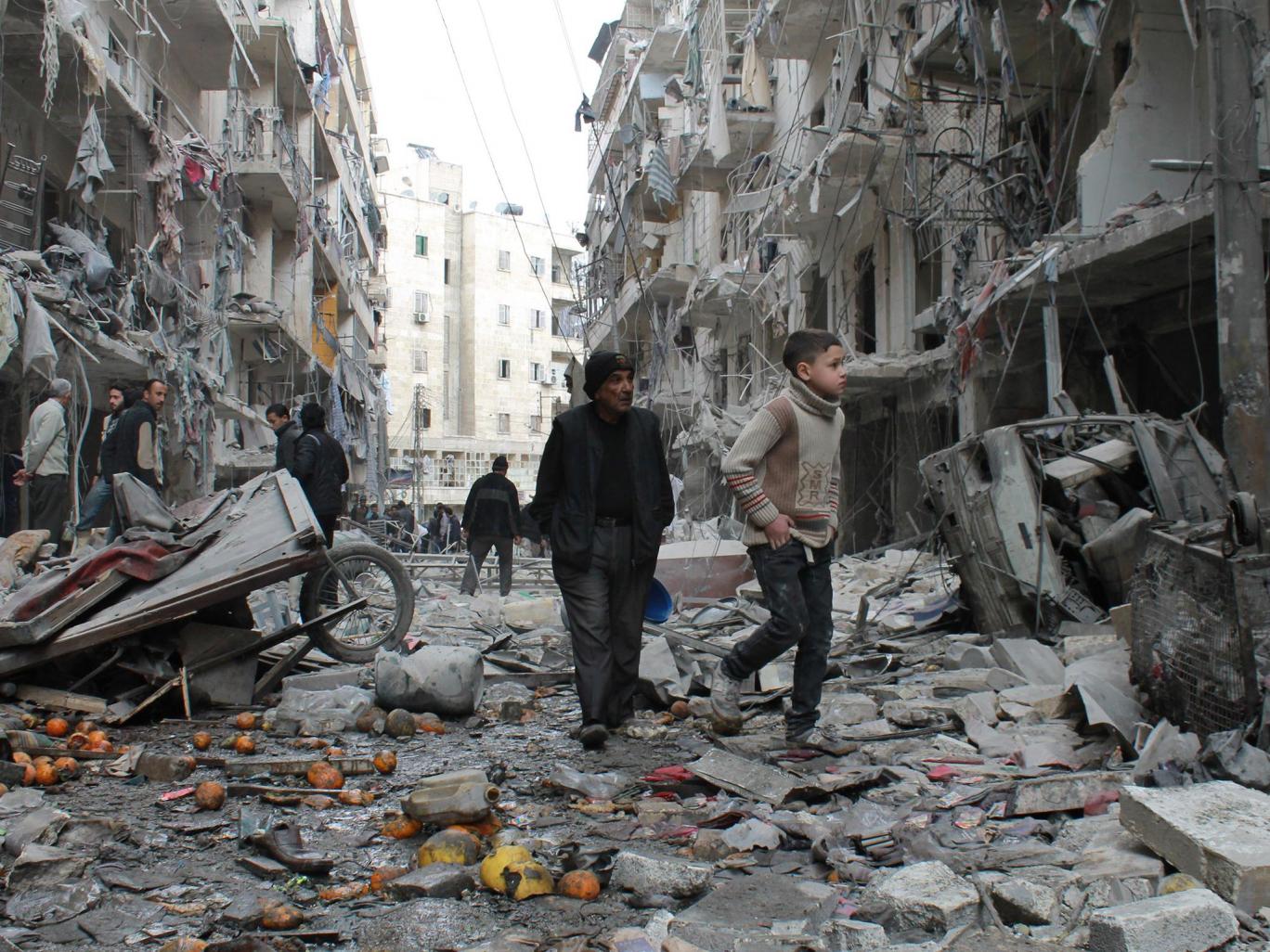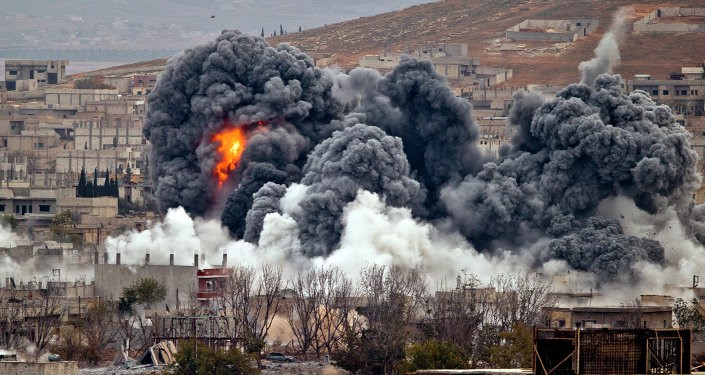President Obama recently suffered the indignity of having 51 mid to high-level diplomats at the State Department openly dissent against his non-policy on Syria. Bill Clinton has said that his willful neglect of the Rwandan genocide was the greatest regret of his presidency. Syria has become Obama’s Rwanda.
 The latest estimates are staggering. Nearly half a million people are dead. Half the prewar population has been forced to move. Six and half million are internally displaced, and four million have fled the country, many to Europe where the mishandling of the refugee crisis threatens the European Project.
The latest estimates are staggering. Nearly half a million people are dead. Half the prewar population has been forced to move. Six and half million are internally displaced, and four million have fled the country, many to Europe where the mishandling of the refugee crisis threatens the European Project.
Syria lies in ruins. The archeological remnants of one of the oldest civilizations in the world–one of the treasures of humanity–are being systematically destroyed. Could things have been different? Yes, if President Obama had shown true leadership.
The idea that each people and region has to work out its own problems—a central tenet of Obama’s negligent policy toward the Middle East—is deeply disingenuous, if not completely hypocritical and immoral.
After Thomas Friedman’s “war of choice” in Iraq, the United States created the very conditions of instability, failed states and terrorism which the Bush-Cheney Administration supposedly invaded to prevent. Iraq became a horrific killing ground, spawning the scourge of suicide bombers, and along with Syria an incubator of ISIS and worldwide terrorism.
President Obama has acted like he was elected to apply as many coats of whitewash over the appalling mistake of invading Iraq as possible, appearing to wash American hands of the entire mess as US troops pulled out.
Just as his initial feeble attempts to end “the global war on terror” were reversed by vastly increased drone operations and extrajudicial executions, so too Obama initially doubled down in Afghanistan, only to slowly back out, without acknowledging his mistake.
The same fecklessness and indifference to American responsibility, much less vaunted “American leadership,” applies to Syria. After initially and persistently insisting that Assad must go, and drawing a “red line” at the use of chemical weapons, Obama reversed himself when Assad’s use of chemical weapons became blatant.
After agonizing over a fateful weekend, President Obama did nothing, paving the way for the Russians to enter and complicate matters much more, not to mention increasing the killing and displacement of civilians by an emboldened Assad.
During the spring of 2011, the same time that Assad’s brutal suppression was beginning, another Arab spring movement was being met with extreme repression and violence in Libya. After Qaddafi announced his intention to slaughter thousands of people in Benghazi, the United States, led by France and Britain, intervened on humanitarian grounds.
With no underlying principle, no strategic guidance, and no true leadership (which, as President Obama is so fond of saying and so loath of doing, could only come from the United States), the humanitarian intervention in Libya degenerated into another regime change. The Russians felt duped, and swore they would never support another such Security Council resolution, thus eroding the UN even further.
This is the general sordid background to the suppurating wound of Syria. What could have been done differently?
If, before the Russians entered the conflict, Obama had said to Assad, the Russians and the world, “We made a mistake in Libya by allowing a humanitarian intervention intended to prevent a certain slaughter by Gaddafi to turn into another regime change military campaign. We aren’t going to make that same mistake again.”
“But we are going to use our military to provide sanctuaries and safe corridors, and our air force to prevent and degrade Assad’s ability to drop barrel bombs and chemical weapons on civilians. We will do this preferably with UN Security Council backing, though if necessary after the fact, since the Security Council has demonstrated repeatedly over the last 20 years and more an inability to act in a timely way in the interests of humankind.”
If President Obama had said and done that, the Russians would not have opposed it; they would not have entered the war to prop up Assad; and they would have accepted the humanitarian fait accompli.
The overall point is that humanitarian intervention to prevent the slaughter and displacement of civilian populations is, when authentic and limited to humanitarian intervention, not just morally mandated and strategically workable, but a true corrective in international relations.
By thinking solely in terms of national interest, while proclaiming the indispensability of American leadership in the world, Barack Obama has jeopardized the former and perhaps fatally undermined the latter. He also quite possibly has paved the way for the likes of Donald Trump.
Beyond the dubious importance of the relations between nation-states in a global society, the psychological, emotional and spiritual impact of the incalculable suffering of the Syrian people deeply affects every decent-minded person of conscience on the planet.
Leadership can be defined as taking risks for universal principles within the context of national and international realities. By this definition, Barack Obama has sorely failed. History will judge him accordingly.
Martin LeFevre

